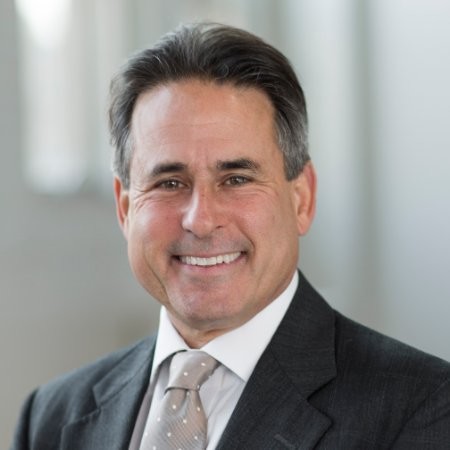Dental school equips future dentists with the essential skills to practice their craft - from the art of diagnosing oral diseases to the precision of tooth extractions, and the intricacies of denture fabrication. But putting these professional skills to task when transitioning from a structured and controlled dental school environment to the dynamic realities of the professional world can often be challenging. While dental schools provide a necessary foundation, the constraints of time and curriculum mean that some of the most valuable insights are acquired through hands-on experience in the field.
I’ve had the privilege of mentoring young dentists in pursuit of fulfilling careers. Being able to pass on the insights I have gained over the years as a practicing dentist and practice owner has been truly rewarding. What stands out most is that individuals who approach the profession with receptivity and a perpetual hunger for knowledge tend to stay committed to the field and achieve notable success.
While every professional inevitably encounters their own mistakes and derives lessons from them, learning from the journeys of experienced dentists can be equally invaluable. With that said, here are three lessons that every new dentist should know that dental school doesn’t teach:
3 Real-World Lessons
1. Pacing for the Marathon
Your dental career is a marathon, not a sprint. With constantly evolving technology and advancements within the field, the provision of dental care has become much more complex. Dentists are now expected to master technology that goes beyond clinical care. For instance, dentists now must learn to use a slew of different software, including practice management, patient communication, AI, and more. And, if they happen to use Curve Dental’s all-in-one software, that challenge becomes easier to tackle.
Newly graduated dentists are not going to step into the field fully proficient in every required skill. If they want to grow, they should keep an open mind and make a deliberate effort to expand their clinical knowledge, leadership abilities, and practice management skills.
2. The Residency Advantage
Graduating from dental school with a mindset geared toward ongoing learning is the best way to advance one’s career. There is not enough time during the four years of dental school to train students in all areas of clinical care, let alone every facet of practice management. Some schools claim to have a robust practice management curriculum, but from my experience, a program of that caliber does not exist.
Remarkably, dentistry is the only doctoral profession that does not require a residency, except in the state of New York. In all other states, dentists immediately begin their careers solely with the knowledge that they gained during dental school. In my opinion, that is cursory knowledge of both clinical care and practice management. What I have learned is that the doctors who graduate from dental school and immediately think that they know it all are the ones I wouldn’t consider as potential associates in my practice.
I encourage all early-career doctors to take steps to take part in a residency. They should consider either joining a general practice residency program or enrolling in an Advanced Education in General Dentistry (AEGD) program. Knowledge is an investment; it grows exponentially, not linearly. The earlier that young professionals can immerse themselves in learning, the more return they will see on their investment.
Another option for recently graduated dentists is to create their own residency program. For instance, they can join multiple offices where they can gain firsthand experience in real-world clinical practice and practice management. Some of the most accomplished dentists I know decided early on to gain exposure to different offices, procedures, educational modules, or classes during the first five years of their careers. They did what it took to elevate their knowledge, improve their clinical skills, expand their procedure mix, and increase their confidence.
3. Overcoming Burnout
Unfortunately, burnout is an increasingly common issue in our profession. However, there are a few strategies that dentists can use to prevent burnout and take charge of their physical and mental well-being.
One of the major, and perhaps unexpected ways that dentists can avoid burnout is by maintaining control over their finances. It’s critical for new graduates, and really all dentists, to understand their financial standing. Many dentists are saddled with significant school debt, which can pose a problem without proper financial management.
From my perspective, keeping your cost of living at a manageable level is the best way to keep burnout under control. During my years as a mentor, I’ve seen eager young dentists, dealing with student loan debt, live a costly lifestyle and make expensive purchases once they start earning a salary. As a result, they experience high stress levels and burnout since they have to work extra hard to meet their debt obligations. So, the biggest key to managing burnout is having a good grasp of personal finances. It’s wise to live a comfortable lifestyle that fits within your budget, and as your financial situation improves, you can consider increasing your living expenses.
Another way to avoid burnout is to make sure you’re working in an environment that aligns with your values. If you are in an office that puts a very high demand on the bottom line with quotas for production, that might add excessive stress. There is nothing that will burn dentists out faster than being part of a practice that prioritizes production over patient care or a healthy work-life balance.
Beyond the Degree
When young professionals step out of dental school into the real world of dentistry, they often realize there’s a lot more to learn than what they were taught in class. A dentist’s journey doesn’t stop when school ends. In fact, that’s just the beginning. By learning from trusted mentors in the field, young dentists will find themselves at a great advantage.

.png?width=2000&height=575&name=Dr%20Bill%20Simon%2011.30%20Blog%20(1).png)



